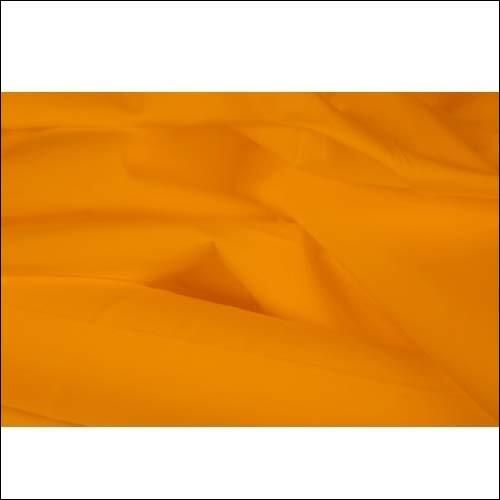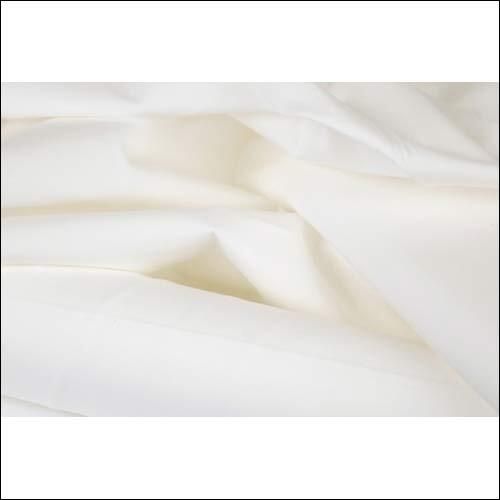
Organic Cotton Fabric
200 INR/Piece
Product Details:
- Material Cotton
- Texture Plain
- Style Plain
- Attributes Light in Weight, Washable, Tear-Resistant, Exceptionally Soft
- Pattern Plain
- Color Orange
- Click to View more
X
Organic Cotton Fabric Price And Quantity
- 5000 Piece
- 200 INR/Piece
Organic Cotton Fabric Product Specifications
- Orange
- Light in Weight, Washable, Tear-Resistant, Exceptionally Soft
- Cotton
- Plain
- Plain
- Plain
Organic Cotton Fabric Trade Information
- 2000 Piece Per Day
- 15-25 Days
Product Description
Organic cotton fabric is a sustainable and environmentally friendly textile made from cotton fibers that are grown without the use of synthetic pesticides, fertilizers, or genetically modified organisms (GMOs). It is produced through organic farming practices that prioritize soil health, biodiversity, and water conservation. Organic cotton fabric offers numerous benefits, including softness, breathability, and reduced exposure to harmful chemicals, making it a popular choice for eco-conscious consumers.
FAQs:
Q: What is organic cotton fabric?
A: Organic cotton fabric is a type of textile made from cotton fibers that are grown using organic farming methods. Organic farming avoids the use of synthetic pesticides, fertilizers, and GMOs, prioritizing environmentally friendly practices and sustainable agriculture. The resulting fabric is free from chemical residues and promotes a healthier and more sustainable textile industry.
Q: How is organic cotton fabric different from conventional cotton fabric?
A: Organic cotton fabric differs from conventional cotton fabric in terms of its production methods. Conventional cotton farming often involves the use of synthetic pesticides, fertilizers, and GMOs, which can have negative impacts on the environment, farmers, and consumers. Organic cotton farming, on the other hand, prohibits the use of these chemicals and emphasizes sustainable practices that promote soil health and biodiversity.
Q: What are the benefits of using organic cotton fabric?
A: There are several benefits of using organic cotton fabric. Firstly, it is grown without the use of harmful chemicals, reducing exposure to pesticides and potentially harmful residues. It is also softer and more breathable compared to synthetic fabrics, providing enhanced comfort. Additionally, organic cotton farming practices promote sustainability, water conservation, and the well-being of farmers and ecosystems.
Q: Is organic cotton fabric more expensive?
A: Organic cotton fabric may be slightly more expensive than conventional cotton fabric. The higher cost is primarily attributed to the more labor-intensive and environmentally friendly farming practices involved in organic cotton production. However, the price difference is often justified by the benefits of supporting sustainable agriculture, reducing chemical exposure, and promoting a healthier planet.
Premium Organic Cotton Fabric
Experience the unmatched softness and durability of our organic cotton fabric. Its plain orange color and texture suit both contemporary and traditional needs, offering versatility for apparel, home textiles, and craft projects. Sourced responsibly in India, this material is light, easy to maintain, and built to withstand everyday wear.
Sustainable Manufacturing and Export
We prioritize eco-friendly production, utilizing natural cotton cultivated without harmful chemicals. The fabric is processed through advanced manufacturing techniques, maintaining its light weight and strength while retaining its inherent softness. Exported and supplied globally, our organic cotton fabric represents high standards and sustainable practices.
FAQs of Organic Cotton Fabric:
Q: How is your organic cotton fabric manufactured in India?
A: Our organic cotton fabric is manufactured in India using sustainable practices, from chemical-free cultivation of cotton to modern spinning and weaving processes. This ensures the resulting fabric remains exceptionally soft, lightweight, and tear-resistant.Q: What makes your cotton fabric tear-resistant despite its light weight?
A: Our specialized spinning and weaving techniques enhance the structural integrity of the fabric, making it tear-resistant while maintaining a flattering light weight and exceptional softness, suitable for frequent use and washing.Q: When is the best time to use this orange organic cotton fabric?
A: The fabrics light weight and soft texture make it suitable year-round, ideal for summer clothing, lightweight curtains, and craft projects where comfort and breathability are prioritized.Q: Where can this plain organic cotton fabric be used?
A: This versatile fabric can be used in apparel, linens, home dcor such as drapes and cushions, and artisanal crafts, providing a bright orange tone and a smooth, plain finish.Q: What is the process for washing and caring for organic cotton fabric?
A: The fabric is fully washable and can be cared for with mild detergents in cold or lukewarm water. Its robust fiber structure prevents damage during regular washing and maintains its softness over time.Q: How does using organic cotton fabric benefit purchasers and the environment?
A: Choosing organic cotton fabric benefits purchasers with its comfort, durability, and hypoallergenic qualities. Environmentally, it supports sustainable agriculture, reduces water and chemical use, and promotes ethical manufacturing.Tell us about your requirement

Price:
Quantity
Select Unit
- 50
- 100
- 200
- 250
- 500
- 1000+
Additional detail
Mobile number
Email
Other Products in 'Textile Fabrics' category
We accept only bulk quantity orders.
 |
BALAVIGNA WEAVING MILLS PVT. LTD.
All Rights Reserved.(Terms of Use) Developed and Managed by Infocom Network Private Limited. |







